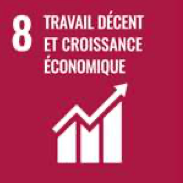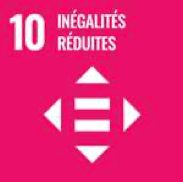Disability and the loss of autonomy
Here you'll find all the research on disability and loss of autonomy carried out at CNRS Humanities & Social Sciences and its laboratories.
Disability was initially studied by health science researchers working on re-education or rehabilitation but the social sciences took up the subject in the 1960s and especially in the 1970s. It was the subject of critical studies linked to disability studies carried out in the United States and the United Kingdom in the 1960s and 1970s. This research helped to change the way we look at people with physical, psychological or cognitive impairments. Today, disability is considered the result of an interaction combining the pathology, other dynamics specific to an individual (age, inherited social, cultural and economic capital developed over the course of a lifetime) and the individual's specific social or physical environment (entourage, living environment, society). Proactive public policies have helped improve responses to the specific requirements of people with disabilities while the regulatory framework has evolved to promote the independence and inclusion of disabled people and ensure a better quality of life for them. This involves progress in schools and training, treatment, employment, accessibility, including digital accessibility, etc.
The humanities and social sciences have fully committed to developing this overall integrated approach to disability and the loss of autonomy that combines the study of individual experiences with work on the social, situational and environmental dimensions of disability. The aim of the research carried out is to understand the mechanisms of autonomy and explore ways of restoring and preserving it including from the idea of adapting the environment to people's differences. The work includes analyses of the impact of legal categories on how disability is managed and on loss of autonomy; the relationship between private care and public policy; the place, role and limits of family solidarity; support policies for disabled people and their carers; and the labour market.
This research involves all the humanities and social sciences, particularly sociology, economics, law, history, philosophy, geography and urban planning. It also features increasing levels of collaboration with the life and health sciences and also integrates more science and technology.



Research centers and networks
CNRS Humanities & Social Sciences laboratories
- Arènes
- Centre de sociologie des organisations (CSO)
- Centre d’étude des mouvements sociaux (CEMS)
- Centre d’Études et de Recherches Administratives, Politiques et Sociales (CERAPS)
- Centre de droit comparé du travail et de la sécurité sociale (COMPTRASEC)
- Centre de recherche sur les inégalités sociales (CRIS)
- Centre de Recherches Sociologiques et Politiques de Paris (CRESPPA)
- Centre de Théorie et Analyse du Droit (CTAD)
- Centre lillois d’études et de recherches sociologiques et économiques (Clersé)
- Centre Maurice Halbwachs (CMH)
- Centre Max Weber (CMW)
- Centre Méditerranéen de sociologie, de science politique et d’histoire (MESOPOLHIS)
- Centre nantais de sociologie (CENS)
- Centre de recherche médecine, sciences, santé, santé mentale, société (CERMES 3)
- Droit et changement social (DCS)
- Dynamique du Langage (DDL)
- Institut de l’Ouest : Droit et Europe (IODE)
- Institut de recherche interdisciplinaire sur les enjeux sociaux Sciences sociales, Politique, Santé (IRIS)
- Institut des sciences juridique et philosophique de la Sorbonne (ISJPS)
- Laboratoire d’études sur le genre et la sexualité (LEGS)
- Laboratoire interdisciplinaire Solidarités, Sociétés, Territoires (LISST)
- Maison des sciences de l’Homme Paris Nord
- Temps, mondes, sociétés (TEMOS)
- Unité de recherche migrations et société (URMIS)
Laboratories in other countries
Innovation et valorisation
- TALANT - Traitement Automatique du LAngage Traumatique) - Dynamique du langage (DDL)
Houses of Human Sciences
- Maison Européenne des sciences sociales et des humanités (MESHS, Lille)
Research programme
- The CNRS is leading the sponsor of the priority research programme (PPR) on Autonomy with funding from the Investments for the Future programme PIA4. This PPR steered by Philippe Martin is dedicated to the theme of autonomy with particular reference to ageing and disability.